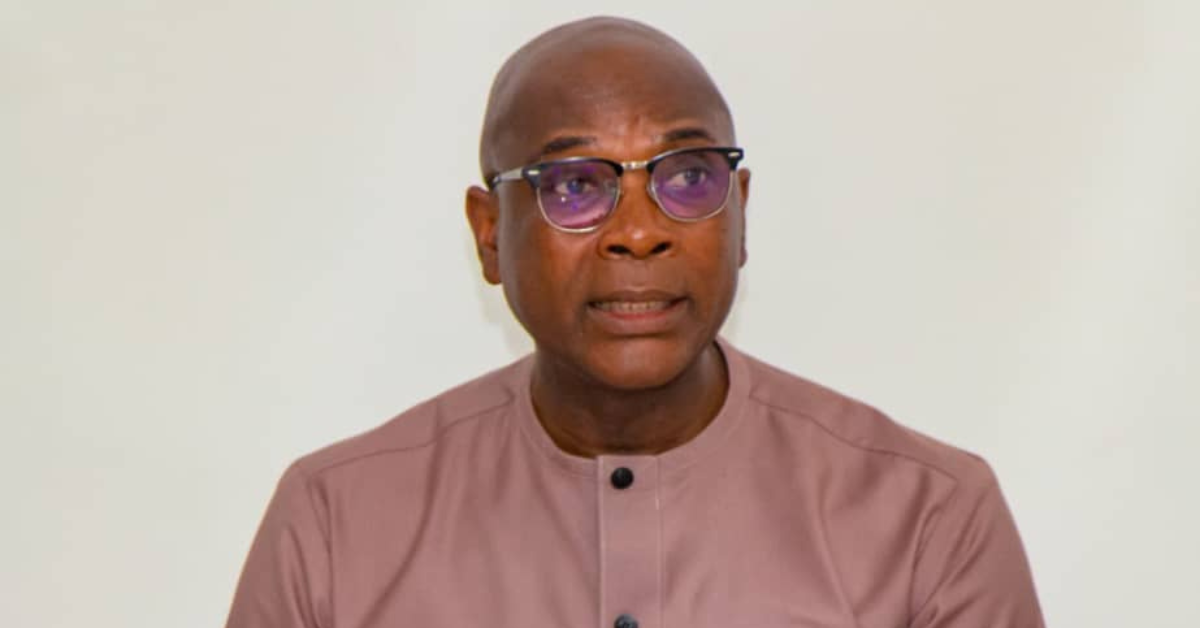The Minister of Basic and Senior Secondary School Education (MBSSE), Conrad Sackey, addressed the controversial issues surrounding the concluded 2024 West Africa Senior School Certificate Examination (WASSCE) and the concerns raised by the Sierra Leone Teachers Union in a press release issued to the general public, and threatened to strike if the issues were not resolved by the government. Minister Conrad Sackey addressed these issues on Tuesday, November 19, 2024, at the Government Weekly Press Briefing.
Minister Sackey explained that the West Africa Examination Council (WAEC) introduced the Continuous Assessment Scores (CASS) in 2021 for schools to upload WASSCE candidates’ grades to the WAEC portal. This system has been implemented in all the other West African countries participating in the WASSCE exams, not just in Sierra Leone. The Minister added that if a WASSCE candidate sat for the exam and failed, the candidate would not be eligible to sit the exams in the following year unless they waited for 3 years to complete the CASS before being eligible to sit the exams again. This CASS system is restricted to public exams, not private exams.
Minister Sackey mentioned that the Government repealed the repeaters’ policy due to the new WAEC system. Many schools failed to upload grades into the new system, causing many WASSCE students to be left out of the exams. He further stated that for a student to sit for the WASSCE examination, the student needs to pass the Basic Education Certificate Examination (BECE). Minister Sackey revealed that he pleaded with the President to make a provision for the WASSCE students left out of the concluded 2024 WASSCE examination. The President signed an Executive Order to fund the 10,000 students left out to sit for the private WASSCE. Minister Sackey explained that they initially registered the 10,000 WASSCE students through a digitalized system. Interestingly, 4,000 students came in as duplicates, leaving 6,000. Despite efforts to get the remaining 2,000 students to come forward for registration, they did not show up.
Minister Sackey emphasized that they would ensure that taxpayers’ money is used judiciously. He stated that the Government later funded the 4,000 students who came for registration, and they are currently sitting for the private WASSCE examination.
Regarding the issue of withheld results, Minister Sackey explained that the five countries in WAEC have a convention that they adhere to, which includes specific laws and agreements. He outlined the two main factors causing WAEC to withhold results, the first being the prohibition of taking a mobile phone into the exam hall. Minister Sackey emphasized the disadvantage of bringing a mobile phone into the exam hall, stating that it holds more information than the largest library in the world. The second factor is cohesion, where if a student is caught for examination malpractice in one subject, WAEC will cancel all the remaining subjects. The Minister referred to the case of 218,000 results withheld in Nigeria and explained the process where an independent panel reviews the evidence of exam malpractice and decides whether to release, continue to withhold, or cancel the results.
Regarding school subsidies, the Minister admitted that the Government had to pay subsidies to schools for the last two terms. He clarified that the strike action was unrelated to salaries as negotiations had already taken place. Minister Sackey noted that while the Ministry of Finance had paid for the third term, there were challenges as some schools complained of not receiving their subsidies. He explained that some schools faced issues with community banks, citing a specific school in Koinadugu District. The Minister highlighted how community banks sometimes misused the funds, engaging in business rather than paying schools. He assured that he would provide evidence to SLTU that the Government had paid school subsidies for the third term and stressed the importance of addressing the issue with community banks. The Financial Secretary had also confirmed that the Ministry of Finance would pay the first term school subsidies after November’s salaries were processed.












Please 🙏🥺 when are they going to release the withhold results please 🙏 we the victim are going through a lot 🙏 🥺🥺🥺
If there was an Award to give the worst minister of Education, Mr minister sackey you will win the Adward for sure, cuz what this, the kids are out there struggling and waiting on there result, you guys are so wicked.You know how much we have spent on them, this education system in SierraLeone is going from grass to rough grass.
The worst minister in sierra Leone is sackey. they need to sack this guy I prefer sengeh rather than this idiot
There’s no justice in our educational system in this country
Thanks for this news…….Since I started taking this exam they have be withholding my results. 2022 my results was not available because they said my school is owning wassce money……2023 after replying for the exam….my name wasn’t on the wassce list for that year….so I decided to set the private wassce…. 2023private wassce results was withhold an uphill now my two results are still yet to he released.
Please am in deep stress! Mr minister the pupils of this nation are asking for you help….. plz sir
God see us through 🤣🤣cuz diz guys are our enemies in the academic field of struggle
When will the withheld results be released or maybe sackey won’t release it
What a wicked Sierra Leone some people like Mr minister sackey have a little peviladge he wanted to destroy the destiny of our students but what I know the wrath of God is waiting you, you think everyone stupid or a fool some students responsible for themselves just to see themselves educated.But when you see a good result you say that this is exam malpractice, something like this just sounding to me like every students in Sierra Leone stupid (I pray that one day president Bio will just wake up one morning and sack you Mr minister